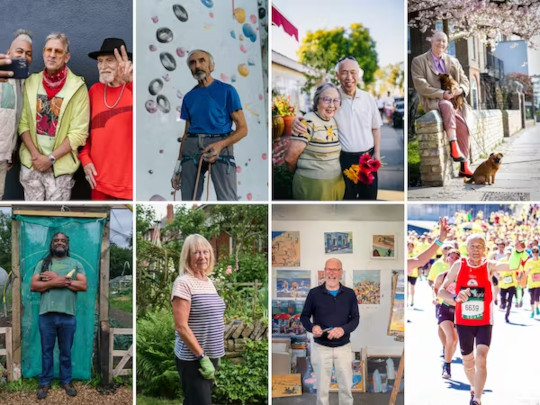Retirement can feel like a strange time for many people. Gone is the routine of work, your time is your own – in theory. How to stop chores from taking over can become a tricky balance. Some people retreat and return to work. Often, those that persevere find they are as busy as ever – but not always with the fun leisurely activities they were looking forward to.
It’s strange that this is so often the case because retirement is something many of us look forward to for most of our working lives. Indeed, it’s the one time in life when you can really devote yourself to hobbies and interests, leisure and pleasure.
This uncertain picture means that approaching retirement can be a time of fear – retirement anxiety is a real thing. So too are the retirement blues.
When you add in potential health concerns and financial worries, it’s maybe not surprising that a recent survey found that more than half of over-40s feel anxious about retiring.
One retirement challenge is how to replace the friendships you make through work. Indeed, it seems the people who fare best in retirement find ways to cultivate connections.
The longest-running study on human happiness found the thing that makes us most happy in life is our relationships and positive social connections – they also help us to live longer too. Indeed, this 85-year-old Harvard study shows that maintaining quality relationships has a huge benefit for our physical and mental health and wellbeing.
Similarly, the charity The Centre for Better Ageing has found that social connections are just as important as money and health to a good later life.
Beyond routine
When it comes to retirement anxiety, my research with retirees shows that most people who have been retired for several years learn to manage their concerns and develop satisfying and interesting lives.
As with a lot of us, most of their time was taken up with home-based chores, self-care, looking after friends and relatives and serving the community – along with working really hard to keep fit, so as to “age well”.
But my research also found that negative notions of ageing can become internalised and prevent people from having fun and making new connections.
In my study, people said they were conscious that others might judge the suitability of their leisure choices. While some rebels could only really enjoy a pastime if they knew their children would disapprove (think daytime drinking, gambling, watching TV, cycling on busy roads in a rainstorm and flirting with strangers), most were limited in their leisure choices by this concern.
Several did not have any pastimes they enjoyed. Those who found a balance had rich and varied leisure lives, but they preferred people from their own age group and a similar background, where they were less likely to be told how amazing they are, for their age.
From anxiety to adventure
While mixing with people from similar backgrounds and age groups can feel safe and comfortable. It can also mean you miss out on new and interesting experiences or having your worldviews challenged or expanded by spending time with different people
Retirement is the ideal opportunity to mix things up and gently expand your leisure repertoire. It’s a time to embrace the convivial in the presence of others, not just the usual people you see.
If you are happy with your leisure life, great. But if there is a little something missing, a little fun that could enhance it, consider adding in something new. Think outside the box of what’s “suitable for your age group”, (what does that even mean?). Indeed, age should not be a barrier to anything, age discrimination is illegal. So if you’re interested then it’s suitable.
If you have limited resources learn a language with Duolingo in five minutes a day. Then when you’re ready, find a language conversation group and join them for a social event.

Think of all the things you could do – then go and try one of them. Pexels
Learn a song, you can do it yourself using YouTube tutorials. If you enjoy that, you could join a community choir, or drag your friends and family to a karaoke night. You could even pick up an instrument and see how it feels to add percussion. Alternatively, perfect a dance at home and if you like it try a dance class – pole dancing has become very popular.
If you have a bit more time to spare, explore taking an interest to the next level. There are local groups for many activities, including rowing, climbing, circus skills, martial arts and horse riding – what takes your fancy?
Not an “organised group” person? Try Frisbee, a boomerang, kite flying, bike rides, skateboarding or roller skating. You don’t have to be with people, just being around them is interesting.
For more sedate options consider a cinema club, jazz club, poetry group, or start a quiz team. If you like the TV show The Great Pottery Throw Down join a ceramic studio and unlock your inner creativity. If you have a free afternoon or evening, look at Eventbright and try something random, because we don’t really know what we love until we find it.
Nothing has to be a lifelong commitment. If you like it, carry on, if not, then move on to something else. Anything you try will make a good story to tell the younger people in your life – they need to know that later life is an adventure worth working towards.
So defy expectations, knock down those mental barriers and try something different. Start today and see where it takes you.![]()
About The Author
Tania Wiseman, Associate Professor, Head of Therapies , Faculty of Medicine, Health and Life Science, Swansea University
This article is republished from The Conversation under a Creative Commons license. Read the original article.

Books Improving Attitude and Behavior from Amazon's Best Sellers list
"Atomic Habits: An Easy & Proven Way to Build Good Habits & Break Bad Ones"
by James Clear
In this book, James Clear presents a comprehensive guide to building good habits and breaking bad ones. The book includes practical advice and strategies for creating lasting behavior change, based on the latest research in psychology and neuroscience.
Click for more info or to order
"Unf*ck Your Brain: Using Science to Get Over Anxiety, Depression, Anger, Freak-Outs, and Triggers"
by Faith G. Harper, PhD, LPC-S, ACS, ACN
In this book, Dr. Faith Harper offers a guide to understanding and managing common emotional and behavioral issues, including anxiety, depression, and anger. The book includes information on the science behind these issues, as well as practical advice and exercises for coping and healing.
Click for more info or to order
"The Power of Habit: Why We Do What We Do in Life and Business"
by Charles Duhigg
In this book, Charles Duhigg explores the science of habit formation and how habits impact our lives, both personally and professionally. The book includes stories of individuals and organizations who have successfully changed their habits, as well as practical advice for creating lasting behavior change.
Click for more info or to order
"Tiny Habits: The Small Changes That Change Everything"
by BJ Fogg
In this book, BJ Fogg presents a guide to creating lasting behavior change through small, incremental habits. The book includes practical advice and strategies for identifying and implementing tiny habits that can lead to big changes over time.
Click for more info or to order
"The 5 AM Club: Own Your Morning, Elevate Your Life"
by Robin Sharma
In this book, Robin Sharma presents a guide to maximizing your productivity and potential by starting your day early. The book includes practical advice and strategies for creating a morning routine that supports your goals and values, as well as inspiring stories of individuals who have transformed their lives through early rising.























